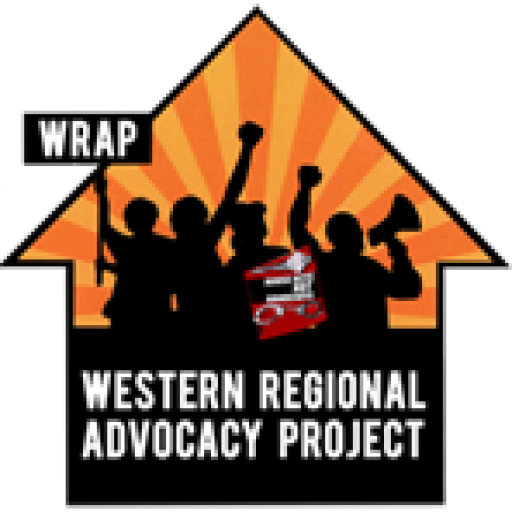Demands of the Unhoused Community Regarding COVID-19 Response
Mayor Hancock’s declaration of the state of emergency leaves the unhoused community out with no protection. As people without housing are unable to follow the CDC’s guidelines without a house to wash up, get rest, isolate oneself, ect. our city must take action to protect all those without housing in at least the following ways:
• Maritorum on encampment sweeps
• Access to hygiene outside
• Sanitation in shelters
• Health Care
• Moratorium on evictions
• Housing
(See further details below)
Other major cities have suspended encampment sweeps to help stop the spread of COVID-19. Earlier today, the City of San Jose published the following emergency alert:
Encampment Abatements: In coordination with public health officials, the Housing Department has temporarily suspended abatements of homeless encampments to avoid the possibility of unintentionally putting anyone at greater risk of exposure to COVID-19.
It’s on the San Jose’s emergency response website, here: https://www.sanjoseca.gov/news-stories/news/emergency-notifications. Denver should do the same (and to include a moratorium on Camping Ban enforcement). The unhoused are particularly vulnerable to COVID-19. This vulnerability is exacerbated by being forced into closed-air, close contact with others (which would necessarily include shelters).
With the spread of COVID-19, we must remember that our communities’ health is interconnected — we must ensure adequate medical care and hygiene for every person, especially those who are unhoused. We should resist any further stigmatization of those living in encampments or shelters. If the virus spreads to unhoused communities, we must ensure they are provided the resources to prevent infection and further spread of the virus. We insist that public officials follow the policies and procedures outlined below to best ensure the health of both our unhoused and housed communities.
Moratorium on encampment sweeps, closures and vehicle tows. Encampment sweeps and closures shall be ended due to the necessity for sustained public health outreach and disease control. No vehicles shall be towed that house people which allow them to self-quarantine. Stable encampments and sleeping accommodations will reduce the spread of disease among unsheltered and general population through consistent access to services and ability for outreach and health workers to provide continuous care. Stable encampments will enable better contact investigation and epidemiological controls necessary. With increased risk of disease spread at shelters where one is in closed-air, close contact with others, many people will not take this risk of staying at shelters and instead must stay on the streets where one can have more space and open air to protect from catching disease.
It may be necessary for local public officials to fund designated encampments staffed with public health providers, hygiene supplies, food and water, with the ability to separate by risk, infected status, isolation, etc.
Moratorium on arrests for crimes of poverty. Arrests shall be halted for loitering, camping, criminal trespassing, or other crimes of poverty.
Access to health and hygiene. Portable toilets that are regularly maintenanced and handwashing stations shall be placed in areas accessible to large unhoused populations and encampments. Trash cans shall be placed near encampments to reduce trash pile up. Hand sanitizer shall be distributed to unhoused people along with information about avoiding and preventing COVID-19. Many more portable toilets and hand-washing stations regularly stocked with soap should be placed around areas where homeless people congregate – along Cherry Creek, the S. Platte River, the neighborhoods around downtown Denver, in all parks. Medical care shall be provided on-location for those who are unable or unwilling to enter hospitals due to substance use or mental health concerns.
Housing accomodations. Housing accommodations, potentially including modular units, shall be arranged immediately for anyone infected who does not have the ability to self-quarantine, as has been done in the Seattle area. If necessary, civil facilities including temporary emergency housing or unused public buildings shall be used to quarantine those who live in a particular encampment or area. This shall include safe parking programs for people who are vehicularly housed.
Shelters. Staff shall regularly sanitize and disinfect surfaces to prevent contamination. Hand washing stations should be located throughout the shelter, not just sinks in bathrooms. Mats and beds should be moved at least 12 feet away from another. Additional shelter space may need to be opened to accommodate this space needs. City buildings can assist in this need. Churches should also take action to assist in this need. Individual isolation accommodations shall be arranged immediately for anyone infected and anyone who is known to have been exposed to the virus. Shelters should provide a surgical mask to each guest daily to reduce the spread of colds, flu and the coronavirus within the shelter and help guests avoid touching their nose or mouth. Efforts should be made by shelters to serve healthy food that will help to alkalize the body to reinforce the immune system and make the body inhospitable for viruses. Those staying in shelters shall have access to harm reduction tools and shall not be denied service for any rule violations short of violence. Shelters shall be opened 24/7. The city should review procedures developed for nursing homes to see what can be implemented for shelters. For example dividers can be used to create more space between individuals mats.
Moratorium on Evictions. No one should be evicted from housing. That housing is necessary for people to follow the CDC’s guidelines and try to protect themselves and the community at large from further disease spread. City police should be stopped from assisting in any evictions. Other major cities including Miami have made such a declaration ending evictions.
Health Care Emergency Response. Medical professionals shall be deployed to provide testing for people living on the streets and in shelters. All testing and treatment shall be free.
Consider this a wake-up call. Many of these services are necessary to maintain public health and should continue to be offered until every person has a stable home.
Denver Homeless Out Loud
https://denverhomelessoutloud.org/
info@denverhomelessoutloud.org
720-940-5291






Leave a Reply
You must be logged in to post a comment.